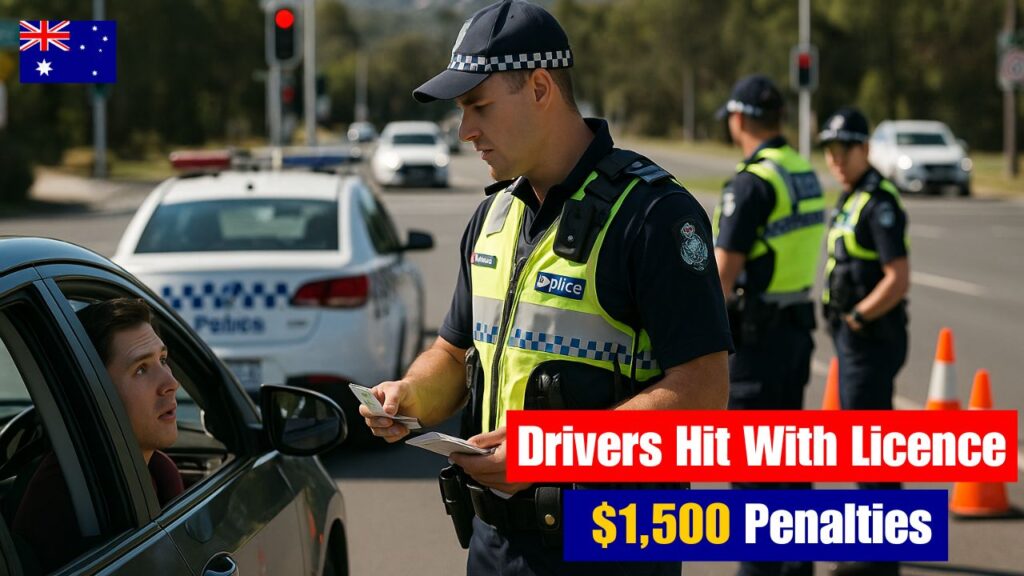Australia is preparing for one of its strictest road safety crackdowns as a new traffic law comes into effect on 2 December, introducing instant licence cancellations and penalties of up to $1,500 for offending drivers. The updated rules are designed to address rising road risks across the country and ensure safer behaviour behind the wheel. With increased enforcement and stronger consequences, motorists are being urged to understand exactly how the changes work. This guide breaks down the key details so Australian drivers know what to expect when the new regulations take effect.

Australia’s new traffic law boosts enforcement
The upcoming regulation marks a significant shift in how Australian authorities respond to dangerous driving, especially repeat offences. Under the revised measures, police will now have greater powers to issue immediate penalties, enforce rapid licence action and suspend privileges through on-the-spot decisions. These changes target high-risk behaviours, including speeding, mobile phone use and intersection violations. Officials say the aim is to support safer daily travel while discouraging drivers who repeatedly disregard road laws. The result is a system built to react faster, impose stricter consequences and reinforce community safety standards.
Instant licence cancellation expands under new rules
One of the most impactful changes is the introduction of instant licence cancellation for serious breaches. Australian motorists committing specific high-risk offences may have their licence removed instantly, with no waiting period. This shift allows authorities to prevent ongoing unsafe driving, reduce repeat road threats, and stop immediate risks quickly. The rule applies to reckless behaviour such as extreme speeding or ignoring critical instructions from road authorities. With strong support from safety advocates, this new approach aims to protect vulnerable road users by ensuring dangerous drivers are removed from the road immediately.
$1,500 fines highlight Australia’s tougher penalties
The revised traffic law also introduces tougher financial consequences, with fines reaching up to $1,500 for serious violations. These penalties are designed to discourage high-risk habits, pressure drivers into better road discipline, and strengthen compliance through strict financial deterrents. Enforcement teams will focus on hotspots where rule-breaking remains common, including intersections, school zones and major highways. By pairing financial penalties with tighter licence controls, the government hopes to reinforce consistent road behaviour and reduce preventable accidents nationwide.
Summary and analysis of Australia’s new law
Overall, the combination of instant licence cancellation and higher fines reflects Australia’s growing urgency to improve road safety. Authorities argue that swift enforcement tools, tighter oversight and targeted safety measures will help prevent serious accidents. While some motorists may view the reforms as harsh, safety experts believe that the approach is balanced, necessary and focused on long-term protection. As the law takes effect, drivers are encouraged to stay informed and follow all updated regulations to avoid penalties and support a safer driving environment.
| Offence Type | Penalty |
|---|---|
| Extreme speeding | Instant licence cancellation |
| Mobile phone use | Up to $1,500 fine |
| Reckless driving | Immediate suspension |
| Intersection violations | Heavy monetary penalties |
| Repeat offences | Extended disqualification |
Frequently Asked Questions (FAQs)
1. When does the new law start?
The law begins across Australia on 2 December.
2. Can licences be cancelled instantly?
Yes, certain serious offences now allow immediate cancellation.
3. What is the maximum fine?
The highest penalty under the new rules is $1,500.
4. Who will enforce these changes?
State and territory police will manage enforcement.




